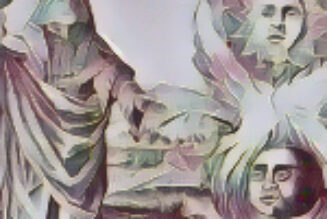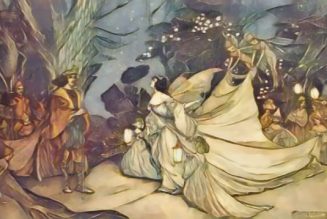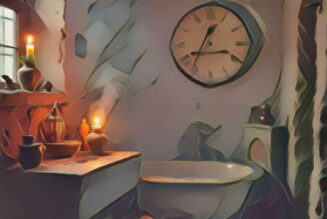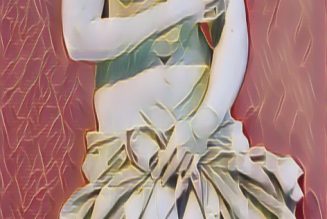Duncan, Helen (1898–1956) was a British Spiritualist whose controversial conviction on dubious witchcraft charges led to the repeal of Britain’s Witchcraft Act of 1736, paving the way for the public practice of Witchcraft.
Helen Duncan, a Scotswoman, gained fame for her natural mediumistic talents by the 1920s.
Throughout the 1930s and 1940s, she traveled across Britain conducting seances.
Attendees claimed she could produce materializations where luminous ectoplasm seemed to emerge from her mouth, forming the shapes of the deceased.
Like many mediums of her era, Duncan faced scrutiny from authorities. (
In 1933, she was found guilty of fraud related to the materialization of a deceased child.
She was accused of using a woman’s vest to simulate the appearance of ectoplasm.
Despite this, Duncan continued her mediumship.
With the onset of World War II, she had a steady clientele of the bereaved seeking to contact their lost loved ones.
Duncan drew the attention of authorities again in 1941 when she allegedly summoned the spirit of a dead sailor at a seance in Portsmouth.
She claimed his hatband bore the name HMS Barham.
The battleship Barham had been sunk off Malta, but the Admiralty had kept the disaster secret to maintain morale, so even the families were unaware.
Disturbed by Duncan’s revelation, people demanded answers from the Admiralty, which complicated matters by delaying an official announcement for three months.
Consequently, authorities kept Duncan under surveillance for the next two years.
With the D-Day invasion approaching, there were fears she might clairvoyantly reveal the planned landing sites in Normandy.
Under the Witchcraft Act of 1735, Duncan was charged with witchcraft for allegedly pretending to summon the dead.
At her seven-day trial at the Old Bailey in 1944, over 40 witnesses testified to their belief in her abilities.
The prosecution argued she was a fraud and “an unmitigated humbug who could only be regarded as a pest to a certain section of society.”
Duncan was convicted and sentenced to nine months in Holloway prison.
As she was led to the cells, she declared, “Why should I suffer like this? I have never heard so many lies in my life.”
Her words echoed those of countless accused witches in Britain, Europe, and America who had previously been jailed or executed under false accusations.
Her case became a cause célèbre, catching the attention of Winston Churchill, who had an interest in Spiritualism.
Churchill was so incensed by the trial that he wrote to the Home Secretary, “Let me have a report on why the 1735 Witchcraft Act was used in a modern court of justice.
What was the cost to the state of a trial in which the Recorder was kept so busy with all this obsolete tomfoolery?”
In 1951, Parliament repealed the 1735 Witchcraft Act, making Duncan the last person in Britain to be convicted and imprisoned for witchcraft.
After the war, Duncan resumed her mediumship.
In November 1956, police raided a seance she was conducting at a private house in West Bridgford, Nottinghamshire.
Duncan was reportedly shocked out of a trance, which her supporters claimed led to her death five weeks later.
However, she was also overweight, diabetic, and had a history of heart issues.
In 1998, the 100th anniversary of Duncan’s birth, a campaign was launched to clear her name and secure a pardon.
The Criminal Cases Review Commission examined the case but decided against referring it back to the Appeal Court.
Spiritualists planned formal petitions.
















































